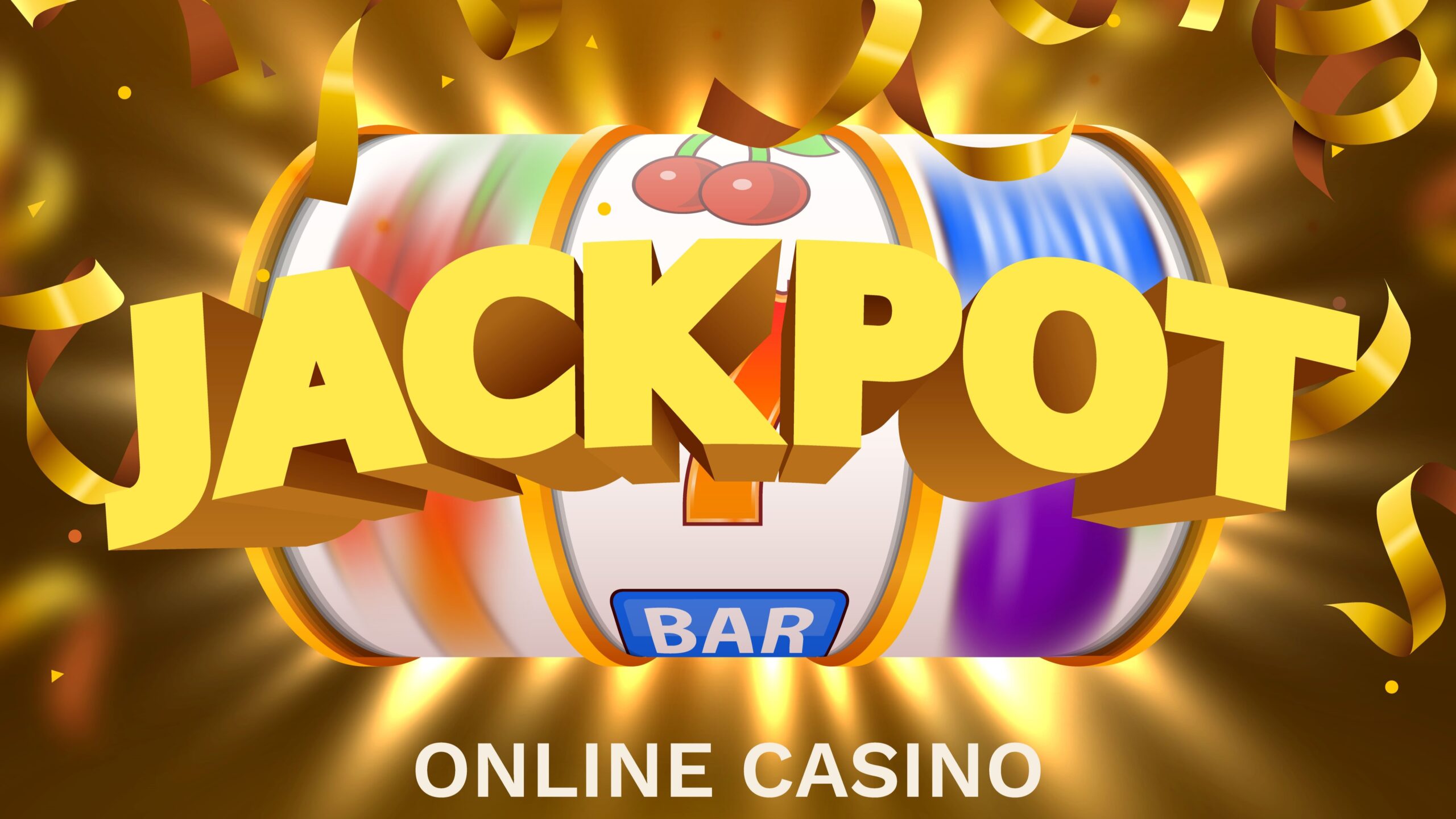Ever walked into a casino or logged into an online gambling site and been hypnotized by the flashing lights and huge jackpot numbers? Yeah, you’re not alone. Jackpot games are thrilling, adrenaline-pumping, and can make you feel like you’re just one spin away from striking gold.
How Jackpot Games Work
Jackpot games are a thrilling category of casino entertainment where players have the chance to win a substantial prize pool, often significantly higher than standard payouts in regular games. These games are most commonly found in the form of slot machines, but they can also include other formats like lottery-style games or table games that feature special jackpot bonuses. The jackpot itself represents a pool of money that is either set to a predetermined amount (fixed) or grows over time (progressive), and this prize can often reach into the millions, especially with networked progressive slots. Players are attracted not just by the game mechanics but by the life-changing potential of hitting that one lucky spin.
These games are designed to keep the excitement high and the gameplay immersive. With vivid graphics, bonus features, and sometimes even mini-games within the main game, jackpot titles are built to be highly engaging. What’s important to understand is that a portion of every bet made by players contributes to the jackpot pool, particularly in progressive games. However, while the rewards can be massive, the odds of hitting the jackpot are usually quite low. Still, the possibility of a huge win for a relatively small wager keeps millions of players spinning the reels every day.
Different Types of Jackpot Games in South Africa
Progressive jackpots are perhaps the most exciting kind of jackpot games available in South Africa—and worldwide. The defining feature of a progressive jackpot is that the prize pool increases every time someone places a bet, as long as the jackpot hasn’t yet been won. These jackpots can be local (linked to machines within a single casino) or networked (linked across multiple casinos, sometimes even internationally), which can result in enormous payouts. Think of it like a snowball that keeps rolling and collecting more snow—each bet adds to the total prize, making the game increasingly tempting as the number grows.
The unpredictability and size of the payout are what make progressive jackpots so appealing. However, these games usually come with stricter requirements to trigger the jackpot—players often need to bet the maximum or trigger specific bonus rounds. Some well-known progressive jackpot games available in South Africa include:
- Mega Moolah – one of the most famous online progressive slots.
- Major Millions
- King Cashalot
- African Legends – a popular game with a regional theme.
These games are regulated to ensure fairness, and their RNGs (Random Number Generators) are independently tested to prevent tampering or manipulation.
Fixed jackpots, unlike their progressive cousins, offer a set prize amount that does not increase with each bet. These jackpots are predetermined and remain the same no matter how many times the game is played or how many players participate. While the potential winnings aren’t as astronomical as progressive jackpots, fixed jackpots offer more consistent and often more achievable rewards. Players may find that their odds of winning are slightly better, depending on the game’s structure.
These types of jackpots are great for casual players or those who prefer less risk. You always know exactly what you’re playing for, and you don’t need to place large or maximum bets to qualify for the top prize. Popular fixed jackpot games in South Africa include:
- Treasure Nile
- Fruit Fiesta
- Cash Splash
- Tunzamunni
Fixed jackpots provide a more stable gaming experience and can be a smarter option for players who want to enjoy the excitement of jackpots without chasing massive (and unlikely) progressive wins.
The Concept of Randomness in Gambling
What Does “Random” Really Mean
In the context of gambling, “random” means that every outcome of a game is entirely independent and unpredictable. This concept is crucial for ensuring fairness and maintaining trust between casinos and players. In truly random systems, past results have no impact on future outcomes, and no one—not the player, not the casino, and not a third party—can predict or influence what’s going to happen next. Whether it’s the spin of a slot reel, the roll of a dice, or the number drawn in a lottery, each event is isolated and uninfluenced by previous actions.
Understanding randomness helps dispel many common myths among gamblers, such as the idea that a machine is “due” for a win or that certain times of day are luckier. True randomness ensures that:
- Each game round is a fresh start.
- Outcomes follow no pattern or trend.
- Winning or losing streaks are purely coincidental.
- Every player has an equal chance on each spin, regardless of their betting history.
This is why licensed casinos rely heavily on complex algorithms and certified RNGs to guarantee that every outcome adheres to the principles of randomness.
How Randomness Is Measured in Gaming
Randomness in casino games isn’t just a marketing term—it’s scientifically and statistically tested. Game developers use rigorous mathematical modeling and extensive simulation to ensure that their games produce truly random outcomes over millions of plays. This is especially true for digital games like online slots, where the outcome is determined by an RNG. These RNGs are sophisticated programs that generate thousands of number sequences per second, even when the game isn’t actively being played.
To validate the fairness of these systems, third-party testing agencies like:
- eCOGRA
- iTech Labs
- GLI (Gaming Laboratories International)
- TST (Technical Systems Testing)
…are brought in to audit the games. They conduct tests such as:
- Chi-square analysis
- Frequency distribution analysis
- Entropy measurement
These audits verify that the game performs within expected statistical margins and that no external factor can influence results. Certified games are given seals of approval, and many legitimate casinos proudly display these certificates to assure players of game integrity.
Regulatory Authorities in South Africa
The National Gambling Board (NGB)
The National Gambling Board (NGB) of South Africa is the top-level authority that oversees all gambling activities in the country. Think of it as the watchdog that ensures gambling is conducted fairly, transparently, and within the framework of national law. The NGB’s responsibilities include monitoring compliance, advising the government on regulatory policies, and working with provincial boards to maintain a unified standard. They also collect and analyze industry data to help shape responsible gambling practices and detect any criminal activities like money laundering or unlicensed operations.
NGB plays a critical role in consumer protection. It ensures that operators are licensed, games are fair, and that all stakeholders, including players, are informed and protected. If a dispute arises or if a casino is suspected of unfair practices, the NGB has the power to investigate and even shut down operations if needed. They also help educate the public about gambling risks and promote responsible gambling behavior. This level of oversight gives players confidence that the games they play aren’t rigged and that there’s legal recourse if something goes wrong.
Provincial Licensing Authorities
While the NGB oversees the national framework, each of South Africa’s provinces also has its own licensing board. These local authorities ensure that gambling operators within their territory comply with both national and provincial laws. Whether you’re playing in Gauteng, KwaZulu-Natal, or the Western Cape, a provincial board handles the issuing of licenses, monitoring of operators, and day-to-day enforcement of rules. These bodies work closely with the NGB but have autonomy in handling local cases and enforcing penalties.
Each province has slightly different procedures, but the goal remains the same—protect the public and ensure fair play. Local licensing boards also conduct inspections, manage complaints from residents, and oversee public awareness campaigns related to gambling. This decentralization allows for better oversight and quicker response to regional issues. So, if you’re gambling in Durban, for example, your game is regulated both by the national body and the local KwaZulu-Natal board.
How Games Are Tested for Fairness
Before a game is made available to the public, it undergoes rigorous fairness testing. This is to make sure every spin, roll, or card draw is based on chance and not manipulated in favor of the house. These tests are conducted by independent, third-party labs that specialize in software integrity and statistical analysis. Among the most respected names in this field are eCOGRA, iTech Labs, and GLI. These organizations don’t just run quick checks—they analyze millions of spins, simulate thousands of game rounds, and perform mathematical audits to validate the randomness.
Once a game passes, the lab issues a certification, and the casino can advertise that their software has been verified for fairness. This certification is often visible on the casino’s website, usually in the footer. Players are encouraged to look for these marks of trust before playing. Here’s a comparison of some of the top testing labs:
| Testing Lab | Headquarters | Main Services | Reputation Level |
| eCOGRA | London, UK | RNG testing, player protection, compliance audits | Very High |
| iTech Labs | Melbourne, Australia | Slot and RNG testing, statistical simulations | High |
| GLI (Gaming Labs) | New Jersey, USA | Full suite compliance for land and online casinos | Very High |
| TST (now part of GLI) | Canada | Focus on technical compliance | High |
These labs ensure that players can trust the results of the games they are playing, and any certified casino will proudly display those credentials.
The Role of RNGs (Random Number Generators)
Random Number Generators (RNGs) are the unseen engine behind every digital casino game. These tiny but mighty pieces of software run in the background and continuously produce sequences of random numbers—thousands of times every second. Even when no one is playing, the RNG is still operating, making it impossible to predict or manipulate outcomes. This randomness is crucial to ensuring fairness in games like slots, online roulette, and digital card games. The idea is simple: every outcome should be completely unpredictable and independent of any other.
RNGs use complex algorithms to produce a vast range of numbers, which are then mapped to specific game outcomes. For instance, in a slot machine, a set of numbers might correspond to specific symbols or reels. Because the software doesn’t “remember” anything from previous rounds, each spin is just as likely to result in a win or a loss, regardless of what happened before. This means there’s no such thing as a “hot” or “cold” machine in a properly functioning system—every play is a fresh roll of the dice.
How RNGs Ensure Random Outcomes
When you hit “spin” on a slot machine or digital roulette wheel, the RNG instantly selects a number from its ongoing sequence. This number is then used to determine the outcome of your spin—completely independently of any previous results. Whether you’re a first-timer betting the minimum or a seasoned high roller going all in, the RNG doesn’t discriminate. It doesn’t “know” who you are or what you’ve done. That’s what makes it fair, blind, and trustworthy (provided the software is certified and untampered).
This level of randomness is essential for maintaining game integrity. To ensure this, casinos and game developers must submit their RNG software for regular auditing by third-party labs (like those mentioned earlier). These labs test the RNG by:
- Running millions of simulations to detect any patterns.
- Checking the distribution of outcomes to ensure even chances.
- Verifying seed values (the initial value that starts the RNG).
If the software passes all tests, it’s certified and approved for real-money play. Without a proper RNG, any online game would essentially be a rigged game—and regulators do not allow uncertified RNGs in licensed platforms.


